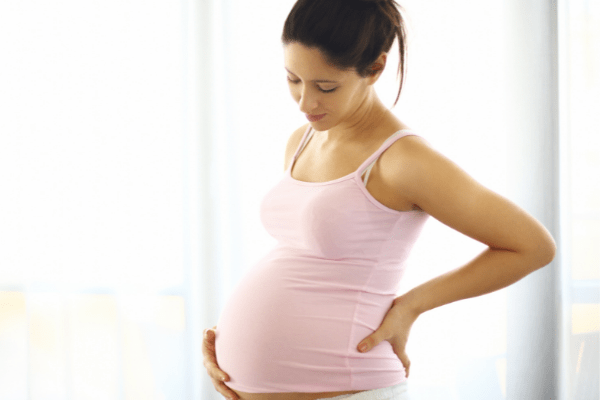- What is Fetal Movement
- What does Fetal Movement Feel Like?
- When Can You Feel Fetal Movement?
- Guidelines for Medical Consultation
- Conclusion
- Frequently Asked Questions About Fetal Movement
What is Fetal Movement
Fetal movement refers to the movements of the baby (fetus) inside the mother’s womb.
The baby inside the womb starts moving as early as around the 7th week of pregnancy. However, until the baby grows significantly larger, the mother rarely feels these movements.
What does Fetal Movement Feel Like?
There are various ways mothers experience fetal movements.
How to Feel Fetal Movement
The sensations can be described in the following ways:
- Rotating
- Punching and kicking
- Popping
- Tickling sensation
- Vibrating, and more
Some mothers may feel these movements differently than described above.
In early pregnancy, the movements feel weak, but as the baby grows, they gradually become stronger.
Positions to Easily Feel Fetal Movement
It is said that fetal movements are more easily felt when lying on your back or sitting in a relaxed position.
However, if the baby is sleeping, you might not feel the movements easily even in these positions.
The baby inside the womb goes through cycles of sleeping and waking approximately every 20 to 40 minutes.
Fetal Hiccups
Among the fetal movements, there are times when it feels like the baby is hiccupping.
This is called “hiccup-like movements.”
Because these movements occur regularly for a certain period, it feels like the baby is hiccupping.
The mechanism behind hiccup-like movements is currently unknown.
Some babies do this frequently, while others do it rarely.
The Relationship Between Hiccups and Down Syndrome
There are rumors that frequent fetal hiccups indicate a higher possibility of the baby having Down syndrome, but no clear relationship has been reported.
Therefore, it can be considered an unfounded rumor.
On the other hand, it has been reported that fetuses with Down syndrome tend to have less fetal movement.
Down Syndrome Testing with NIPT (Non-Invasive Prenatal Testing)
Fetal movement alone cannot determine if the baby has Down syndrome.
To check if the fetus has Down syndrome, you can undergo a test called NIPT (Non-Invasive Prenatal Testing), which assesses the risk of chromosomal abnormalities.
NIPT (Non-Invasive Prenatal Testing) is one of the tests that examines the chromosomes that make up the DNA of the baby inside the womb for any abnormalities.
Down syndrome and Edwards syndrome, among others, are conditions that occur due to abnormalities in the chromosomes.
Therefore, by using NIPT (Non-Invasive Prenatal Testing) to check for chromosomal abnormalities, it is possible to test whether the baby inside the womb has Down syndrome.
NIPT (Non-Invasive Prenatal Testing) can be done relatively easily because it only requires a blood sample from the mother.
However, please note that NIPT (Non-Invasive Prenatal Testing) is not a definitive diagnosis of chromosomal abnormalities in the fetus but a highly accurate screening test.
Breech Baby Movements
If the baby is in a breech position, where the head is positioned upwards, the sensations of fetal movement differ from the usual.
Normally, the baby is in an upside-down position with the head down and the feet up, making movements felt more easily in the upper abdomen.
In contrast, with a breech baby, the head is up and the feet are down, so movements are more easily felt in the lower abdomen.
Until around the 30th week of pregnancy, there is enough room for the baby to turn around inside the womb.
Therefore, feeling breech movements temporarily is not a cause for concern.
As the due date approaches, the baby’s head often naturally moves downwards into the normal position for birth.

When Can You Feel Fetal Movement?
The baby inside the womb starts moving around the 7th week of pregnancy, but most people begin to feel fetal movements around the 4th to 5th month of pregnancy.
There are differences in when individuals start feeling these movements, so it may be later for some people compared to others.
Early Pregnancy (up to 4 months) Fetal Movement
In the early stages of pregnancy (up to 4 months), it feels like small, wriggling or squirming movements in the lower abdomen.
Mid Pregnancy (5-7 months) Fetal Movement
In the middle stage of pregnancy (5 to 7 months), it feels like the baby is kicking your stomach or pushing from the inside.
This is the period when the uterus grows larger and the amount of amniotic fluid increases, making the baby’s movements more active and easier to feel.
Late Pregnancy (8-9 months) Fetal Movement
In the late stage of pregnancy (8 to 9 months), the movements can become strong enough to feel painful.
As the baby grows and becomes stronger, movements of the hands and feet can cause significant sensations.
However, since the space inside the uterus decreases as the baby grows, there will likely be fewer large movements compared to the middle stage of pregnancy.
Full Term Fetal Movement
In the final month of pregnancy, the sensations are similar to those in the late stage.
Some people feel that movements gradually decrease as they approach childbirth, but the movements do not disappear completely.
Differences Between Labor Pains and Fetal Movement
The difference between labor pains and fetal movements is that fetal movements are caused by the baby moving, while labor pains are caused by the uterus contracting in preparation for childbirth.
When the uterus contracts tightly, it causes pain in the abdomen.
Since the reasons for each are different, it is possible to feel fetal movements during labor pains.
Intense Fetal Movement at Full Term
Generally, in the final month of pregnancy, as the baby grows larger, the available space for movement becomes narrower, so movements may decrease.
However, some babies remain very active even in the final month.
Therefore, there is no need to worry if your baby is very active during this period.
The Baby Keeps Moving Even at Full Term
In the final month of pregnancy, as labor progresses and the baby engages in the pelvis, you might feel a reduction in movement, but the baby continues to move right up until birth.
If you feel a decrease in fetal movements during the final month, contact your hospital to have the baby’s condition checked.
Fetal movements are a direct sign that allows the mother to feel if the baby is healthy. If you notice any changes, it is advisable to have the baby checked at the hospital.
Fetal Movement Count
Fetal movement counting is a method to check the health of the baby inside the womb by counting the number of movements.
There are various ways to perform fetal movement counting.
One example is the 10-count method, where the mother, in a relaxed state either lying on her back or sitting in a chair, measures the time it takes to feel 10 movements.
The counted fetal movements are recorded in a fetal movement count chart to monitor progress and patterns.
Guidelines for Medical Consultation
The effectiveness of fetal movement counting is still unclear, and the standard time for counting is under debate, requiring further research.
Therefore, it is difficult to determine the guidelines for medical consultation based solely on fetal movement counts.
When Fetal Movement is Intense and Painful
There may be times when fetal movements are so intense that they cause pain, but unfortunately, there is no way to calm them.
Rubbing or warming the area where the pain is strong can help alleviate the discomfort.
When You Feel Fetal Movement is Decreased
If you feel that fetal movements are reduced, it may indicate a problem with the baby.
Contact your hospital and consult with them.
However, it is common for fetal movements to gradually decrease as childbirth approaches.
When There are Significant Differences Between Days
The strength of the movements you feel can vary depending on the baby’s position and level of activity.
Therefore, it is important to know that the strength and frequency of fetal movements can vary from day to day.
Consult Immediately if Fetal Movement is Unusual or Causes Anxiety
Since fetal movements are caused by the baby moving, there are individual differences and daily variations in how they are felt.
However, if you notice a significant change from the usual pattern or feel very few movements, it is important to consult your doctor immediately.

Conclusion
This time, we explained fetal movements felt during pregnancy.
As the baby grows, the way you feel fetal movements will change.
If there is a sudden decrease or you stop feeling movements altogether, it may indicate a problem with the baby inside the womb, and you should visit the hospital immediately.
There are rumors that fetal movements can indicate Down syndrome, but in reality, it cannot be accurately determined through fetal movements alone.
To check for chromosomal abnormalities, including Down syndrome, NIPT (Non-Invasive Prenatal Testing) is recommended.
If you are considering NIPT (Non-Invasive Prenatal Testing), please feel free to contact Hiro Clinic NIPT.
【References】
- Fetal movements as mother-child contact during pregnancy – —Analysis of Onomatopoeia Representing Fetal Movements in Fetal Movement Diaries—
- Japan Society of Obstetrics and Gynecology “Women’s Health Q&A” – Pregnancy and Childbirth
- Obstetrics and Gynecology Clinical Guidelines – Obstetrics Edition 2020 – Obstetrics and Gynecology Clinical Guidelines — Obstetrics Edition 2020
Q&A
Here, we will answer some frequently asked questions about fetal movements.
-
QIs there a difference in when first-time mothers and experienced mothers feel fetal movements?It is said that experienced mothers tend to feel fetal movements earlier than first-time mothers. This is because experienced mothers have previously experienced fetal movements and are more likely to recognize the slight movements in early pregnancy as fetal movements rather than dismissing them as something else.
-
QDoes body type affect when you feel fetal movements? Is it harder to feel movements if you are overweight?It is said that mothers who are slimmer tend to feel fetal movements more easily. If you are overweight, the extra fat around the abdomen can make it harder to feel the movements.
-
QIs there a difference in fetal movements between boys and girls?You might feel that there is a difference in movements based on the baby's gender, but in reality, there is no difference between boys and girls. There is a superstition that intense fetal movements indicate a boy, but there is no medical evidence to support this.
Article Editorial Supervisor

岡 博史先生
【役職】
【資格】
【略歴】
【所属】
【SNS】
 中文
中文












